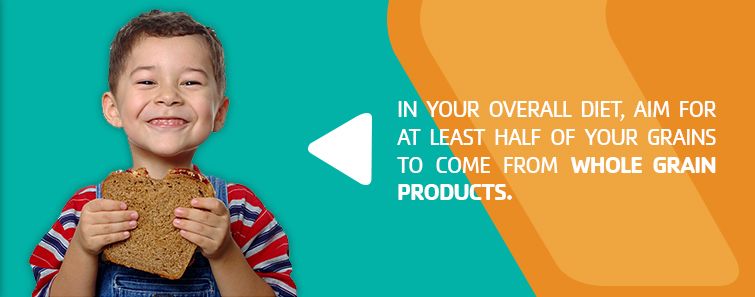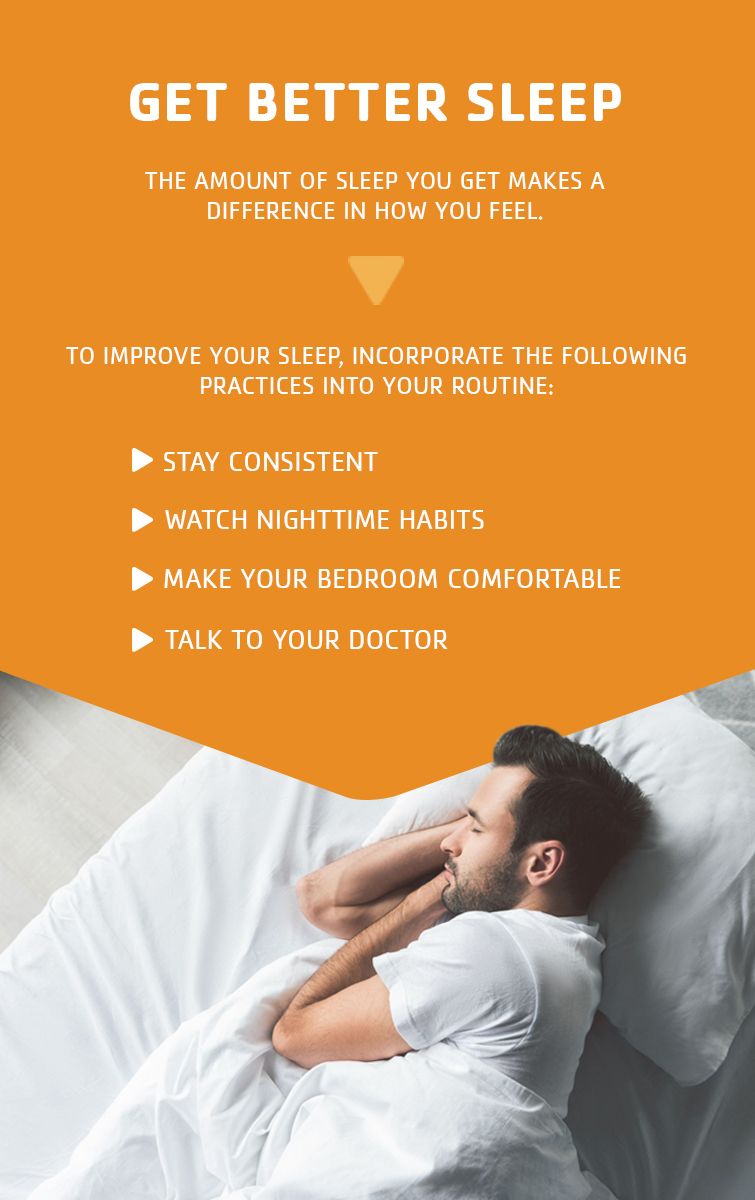
Don't focus on dieting this time of year. Think about healthier eating instead. Dieting lasts for a short while, and New Year's diets often don't last beyond Valentine's Day. Making changes to your eating habits for life helps you get healthier without resorting to potentially unsuccessful or dangerous fad diets.
With all eating regimens, consult with your doctor before making significant changes to what you eat. As part of our mission at the Gateway Region Y, we provide the community with ways to build healthy spirits, minds and bodies through exercise programs, wellness consultations and more. See how you can use our amenities to give your healthy living a boost.
What Makes a Healthy Diet?
Creating a healthy diet starts with knowing about balanced nutrition. Skip the latest fads — they'll fade away with time. Fad diets don't work. What does work when you want a sustainable new lifestyle is incorporating healthier foods and activities into your life rather than focusing on restriction.
While fads fail, only a pair of current eating regimens show health benefits by lowering cardiovascular disease risk, preventing strokes and reducing blood pressure. These diets are the DASH — Dietary Approaches to Stop Hypertension — regimen and the Mediterranean diet.
These diets have several factors in common. Both use whole grains and fruits and vegetables to make up most of the eating style. Red meats and dairy products appear infrequently. If you want to change your diet, always discuss the move with your doctor. Because your nutritional intake has such an impact on your health, your physician will need to know about any major changes to your lifestyle, even if you want to adopt a healthy diet.
Add Vegetables
Both the Mediterranean diet and the DASH diet rely on fruits, vegetables and whole grains for the majority of their caloric intake. These foods have high levels of fiber and nutrients, which could contribute to the reduced incidence of diseases in people who followed eating plans with these foods.
Strive to incorporate as many fruits and vegetables into your diet as possible. These foods have vitamins, minerals and fiber that will help your overall health while filling you up with healthier foods. When you're eating vegetables, try to keep them in their whole form. Frying or adding copious amounts of sugar to fruits and vegetables negates some of their health benefits.
To help balance the sodium in your body, choose fruits that are high in potassium. Citrus fruits, bananas, beans and avocados are all among the potassium-rich foods that can mitigate the effects of sodium on your blood pressure by lowering the amount of it. If hypertension is in your family or you have it yourself, discuss with your doctor adding potassium-filled fruits and vegetables into your diet.
Pick Whole Grains
Don't make any food group off-limits, including carbohydrates. But to ensure you get the most from the carbs you eat, opt for whole grains. There are two ways to determine whether the grains you choose are better choices than unrefined foods:
- Look for the label: The Whole Grains Council label on a product indicates that the company has voluntarily declared a high level of whole grains in the food.
- Check the nutrition facts: Companies do not have to use the Whole Grains Council label. If you want to see how nutritious a grain product is, look at the nutrition facts. Do some quick math to see if the total carbohydrates listed is no more than 10 times the fiber in the product. For instance, grain products with two grams of fiber should have no more than 20 grams of total carbohydrates.

In your overall diet, aim for at least half of your grains to come from whole grain products. To do so, choose whole wheat flour over white, brown rice over white and oatmeal instead of corn flakes.
Use Olive Oil Instead of Butter
People who follow the Mediterranean diet replace butter with olive oil. Olive oil, with its healthy fats, is the primary fat source for the Mediterranean diet. Try dipping your bread in olive oil instead of slathering it with butter at the dinner table. When you're cooking vegetables, use a small amount of olive oil in the pan to replace the butter you'd typically use. For salads, drizzle olive oil and lemon over your vegetables instead of dressing.
Choose Dairy Carefully
Milk, cheese, yogurt and other dairy products are excellent in any diet. These products have protein and calcium, but when you're selecting your dairy, opt for low-fat or fat-free versions, and enjoy them sparingly. The DASH diet, which espouses a lower-fat lifestyle, recommends lower-fat dairy, whereas the Mediterranean diet uses cheese and yogurt in moderate amounts at meals.
Hold Back on Sweets
While nothing is ever prohibited in a balanced diet, reduce your intake of sweet desserts. Make these treats for special occasions like birthdays and restaurant dinners. If you frequently go out to eat, choose one or two days a week to enjoy dessert at a restaurant. The rest of the time, satisfy your sweet tooth at the end of a meal with fruit instead.
Moderate Alcohol Intake
The Mediterranean diet allows for a reasonable amount of alcohol with meals. For women, this level means no more than one drink a day. Men can have two drinks a day. What constitutes a serving depends on the alcohol content. For hard liquor of 80-proof, one and a half ounces is one drink. A 12-ounce beer counts as one beverage, as does a five-ounce glass of wine. If you pour drinks at home, measure them to be sure you don't accidentally serve yourself too much.
Why Fad Diets Don't Work
Trying to lose weight? Maybe you think you already know how to diet. If your idea includes the latest trends, though, you need to reevaluate your eating habits. Don't fall for the fad diets. In one study of twins, those who had more cycles of intentional weight loss ended up having higher weights than those who did not intentionally lose weight at the end of the study. Females were more prone to gaining extra weight after dieting than males, and those who had intentional weight loss more than twice gained the most weight.
If you're a chronic dieter, scientists refer to your habits as cyclical dieting, but you may know the process as yo-yo dieting. You go on a diet, lose weight, feel deprived, stop dieting and gain weight only to lose it on your next quick weight loss scheme. Such a pattern, while mentally frustrating, can also damage your health. Repeated weight gain and loss can negatively impact your cardiovascular health, especially if you started dieting from a healthy weight.
In a study comparing low-carb to low-fat diets, both proved equally effective at weight loss, and both were just as unsustainable for life. The low-carb diet restricted carbs to 20 grams a day, while the low-fat diet kept fats in check at 20 grams daily. Both restrictions are nearly impossible to adhere to for life. You could easily surpass these amounts with a single serving of food.
Knowing the participants wouldn't be able to maintain their fad diets for long, researchers asked them to slowly incorporate restricted carbs or fats back into their routine until they could reach a sustainable level. The participants also stuck to healthy eating guidelines and included 150 minutes of exercise into their lives weekly.
Sticking It out When Cravings Strike
When cravings strike, don't give up on these healthy dieting tips. In fact, a quality eating routine allows for treats occasionally. If you know you can have a piece of cake later, you may be less likely to guiltily eat an entire carton of ice cream now.
Another way to help with cravings requires you to be proactive. Don't let yourself get too hungry. Enjoy fruits and vegetables as healthy, filling snacks between meals. You won't feel deprived this way, and you can side-step the cravings before they hit.
Find other activities you enjoy. If you find yourself feeling peckish when you're bored, consider taking up a new hobby. Whether you meet friends at the Y for a swim in the pool or a Zumba class together or learn a new skill, your hobby can enrich your life and distract you from the cravings. Engaging in your hobby with friends will also help you build a support network to help you through those times when your healthy habits are hard to see through.
Quick Wins
You don't need to completely change your entire life to incorporate healthier eating habits. These quick tips for a healthier diet prove you need only small steps to see significant results:
- Use milk instead of water at breakfast: Make your oatmeal or other hot morning cereal with milk instead of water. You'll get a protein and calcium boost early in the morning this way. Just using two-thirds of a cup of skim milk increases your breakfast protein intake by six grams.
- Choose a healthy veggie side at lunch: Instead of answering "yes" when asked if you want fries with that, pick another non-fried vegetable side dish. Picking broccoli, side salad or mixed vegetables increases the vitamins and fiber you get over eating french fries or potato chips.
- Select darker greens for salads: The darker green the lettuce you use in your salad, the more healthful it is. While iceberg lettuce is a staple of restaurant salads, spinach has more calcium, vitamin C, omega-3s, beta carotene and folic acid than iceberg lettuce. Kale is another tasty and healthy leafy vegetable you can incorporate into salads.
- Make dinners at home: Preparing dinners at home gives you control over the ingredients. For one, you can choose how many fruits and vegetables you use in your recipes. Also, when you make your dinners, you can select healthier cooking methods, such as steaming or baking rather than frying.
Don't Stop There
Healthy diet tips are only part of living a better life. You'll need to round out your lifestyle to achieve health in all areas — physical, mental and emotional. For physical health, a diet is one part. Strive to get better sleep each night, stay active and lead an emotionally balanced life as well.
Get Better Sleep

The amount of sleep you get makes a difference in how you feel. Americans who reported fewer than seven hours of sleep a night were more likely to be inactive, obese, current smokers and have 10 or more chronic diseases compared to those who slept longer.
To improve your sleep, incorporate the following practices into your routine:
- Stay consistent: Avoid sleeping in on weekends, and always give yourself at least seven hours in bed nightly. Staying consistent with your sleep is a critical factor in keeping good sleep hygiene.
- Watch nighttime habits: To keep yourself from waking up at night, don't drink alcohol, use electronics or eat large meals close to bedtime.
- Make your bedroom comfortable: Keep stress out of your bedroom by using your bed for only sleep and sex. Maintain a cool, comfortable atmosphere in your bedroom. Use blackout curtains to keep sunlight from seeping into the room if needed.
- Exercise: Staying active keeps your body fit and helps improve sleep. Just don't exercise too close to bedtime.
- Talk to your doctor: If you still have insomnia after improving your sleeping habits, you could have a medical or psychological problem that needs to be resolved. Your doctor may look for physical problems that could disrupt sleep or recommend cognitive behavioral therapy if you have mental issues that require treatment.
Stay Active

With healthy diet changes, you also need to exercise. At the Y, we'll provide you with group exercise, water fitness classes, wellness consultations and a weight loss program to help you seek a healthier lifestyle. Our facilities will help you get active no matter how you like to move.
Check out our basketball court, pool, gym or indoor track. Don't worry about your level of fitness or experience with exercise either. We have group classes for all abilities and ages to get you started. Choose from Zumba, cycling, yoga, Pilates and many more. With our free Child Watch on site, you can bring your kids along while you move toward your goals.
Balance Your Life
Your mental and emotional health depend on how balanced your lifestyle is. Try to avoid overworking or overscheduling yourself. Make time for friendships and family. If you want to make more connections and don't know where to start, check out some of our group classes at the Y. You'll get active while you meet others with similar goals of improving their health.
Make Changes for Life
Dietary changes should last a lifetime. Let us at the Y help you in your healthier eating and exercise goals. Sign up today to join the Gateway Region Y if you're anywhere in the St. Louis area. If you want to try us out, sign up for a free trial. Still have questions? Don't worry. We're here to help you get the answers you need. Contact us online with questions you have about us or our programs. We can't wait to hear from you and see you as a member!
